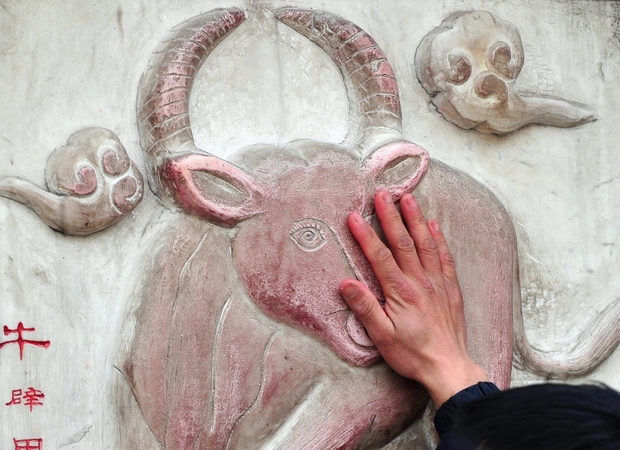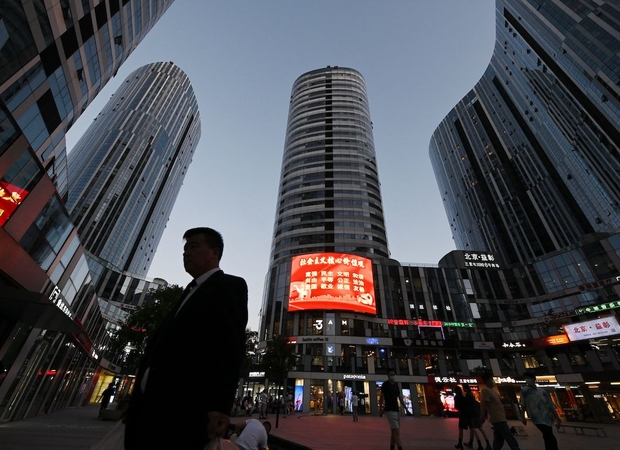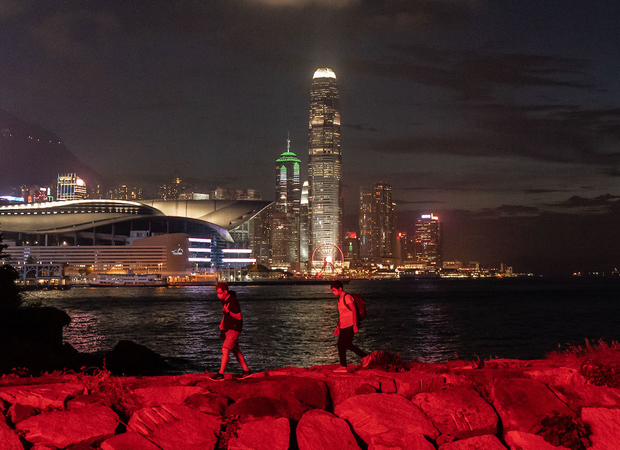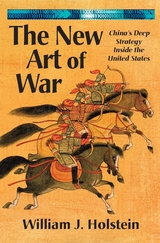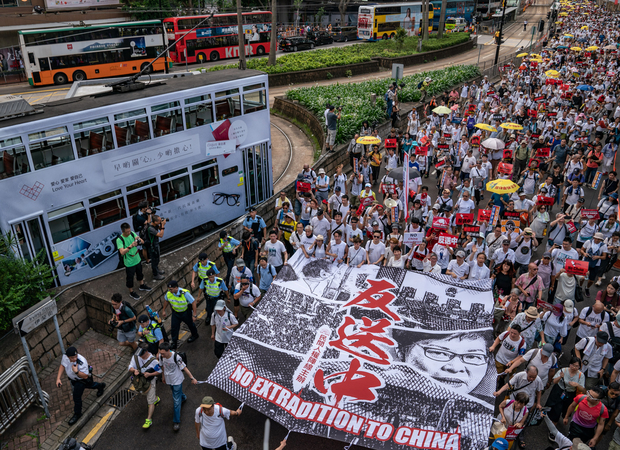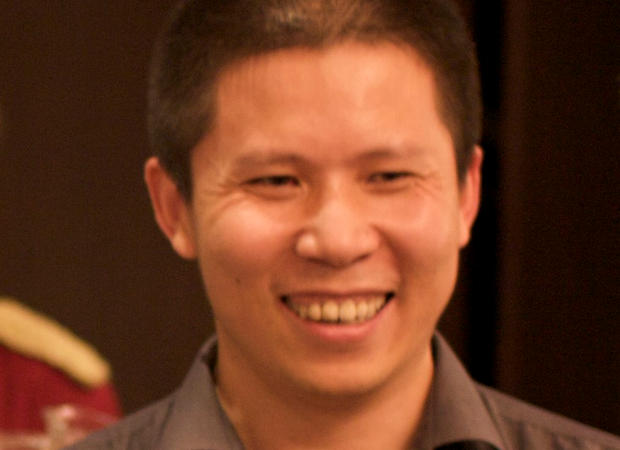
Xi vs. Xu: Two Visions for China’s Future
In late October, Radio Free Asia reported that Chinese civil rights advocate and lawyer Xu Zhiyong, who is serving a 14-year sentence for state subversion, has been hunger striking to protest the conditions of his incarceration. Xu’s imprisonment...
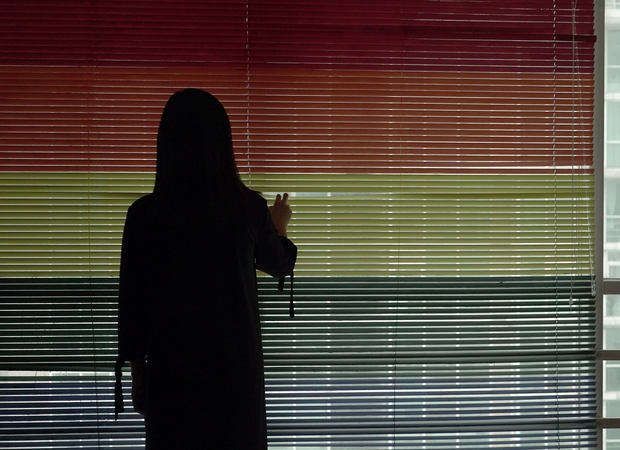
How a Crackdown Transformed LGBTQ Activism in China
In 2020, events took a turn. Soon after wrapping up Pride Month festivities, Shanghai Pride announced it was ending its 12-year run. Organizers soon revealed the reason for the closure was that they no longer felt safe under intensifying...
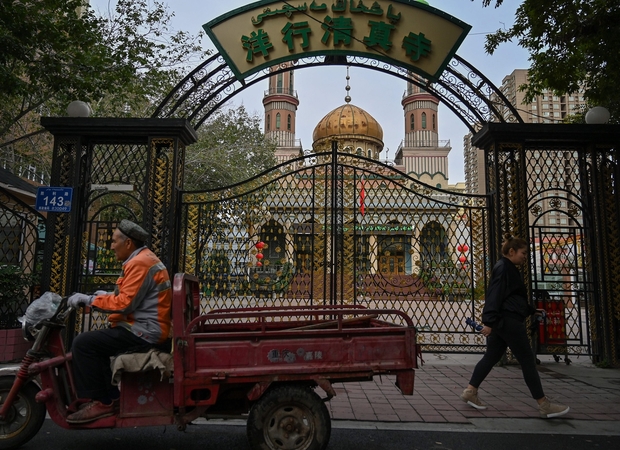
A New Round of Restrictions Further Constrains Religious Practice in Xinjiang
Authorities in the Xinjiang Uyghur Autonomous Region rang in 2024 by announcing an update to the region’s strictures on religious practice. Changes include new rules to ensure that sites of religious worship, like mosques, look adequately “...
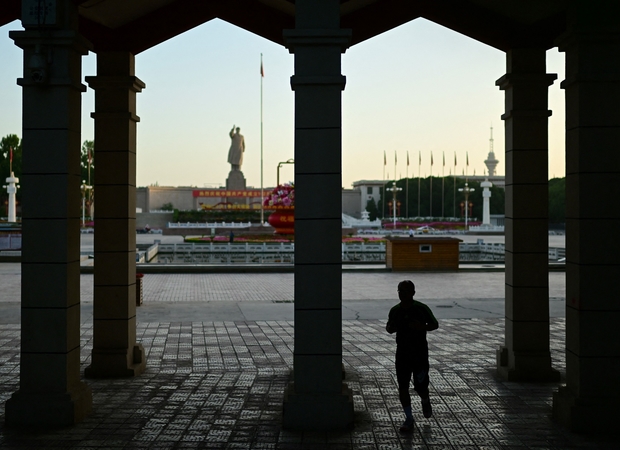
Xinjiang Authorities Are Retroactively Applying Laws to Prosecute Religious Leaders as Criminals
from Foreign Policy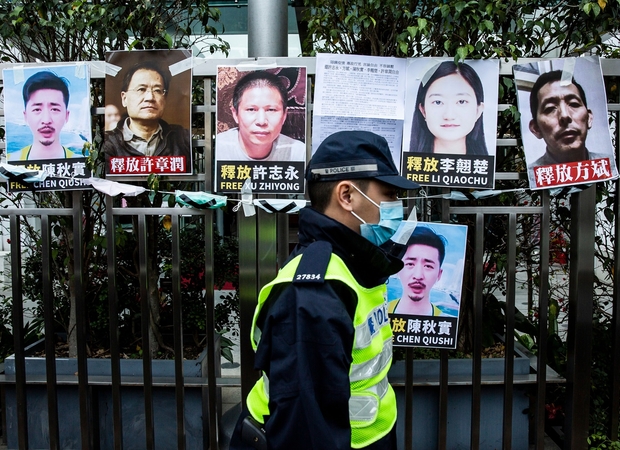
Beijing Is Pouring Resources into Its UN Human Rights Review—All to Prevent Any Real Review from Taking Place
On January 23, a large delegation of Chinese officials will appear at the United Nations Human Rights Council (HRC) to try to defend the indefensible. For the first time since 2018, China will undergo a Universal Periodic Review (UPR), in which...
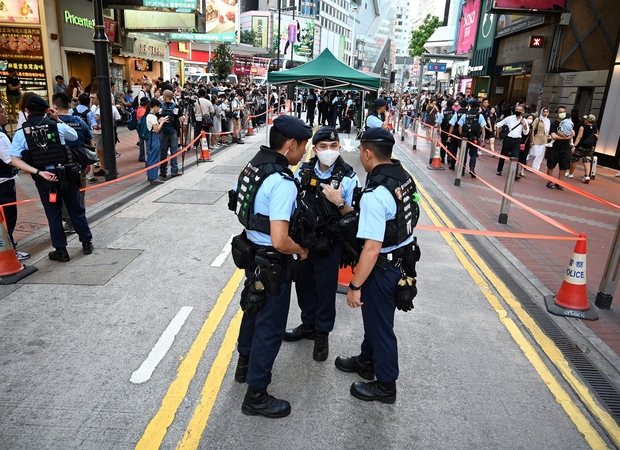
Three Years in, Hong Kong’s National Security Law Has Entrenched a New Status Quo

Thanks to a County in Utah, Same-Sex Couples Can Get Married—In China
When Juying attended her son Yangming’s wedding this summer, she was not in a banquet hall or a church but in her apartment. On Zoom, she watched Yangming—3,000 kilometers away in the southern metropolis of Guangzhou—stand next to...
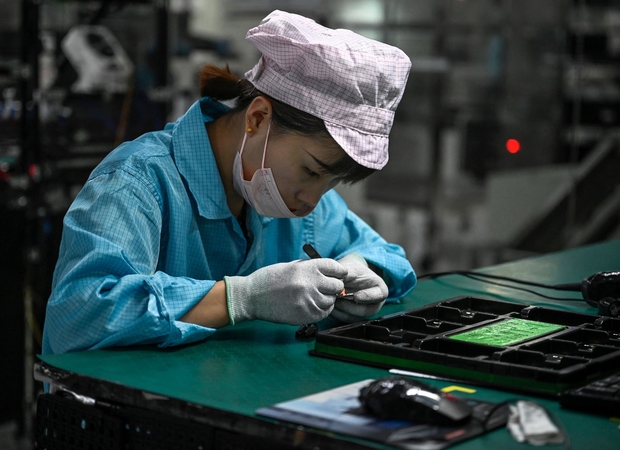
New Export Controls on Chinese Semiconductors May Prove Self-Defeating
New restrictions are not only likely unnecessary, they may ultimately prove self-defeating. Overly zealous controls that limit older semiconductor equipment sales to China will inflict collateral damage on American, and potentially international...

Hong Kong from the Inside
from New York Review of BooksIn November 2019, some one thousand young pro-democracy protesters occupied the campus of Hong Kong’s Polytechnic University, which is located at a crucial junction of two highways and the cross-harbor tunnel. They disrupted...

Can a New U.S. Law Prevent Uyghur Forced Labor?
Last month, the U.S. began enforcement of the Uyghur Forced Labor Prevention Act. Signed into law late last year, the UFLPA bans imports of goods made in Xinjiang unless the importer can offer “clear and convincing evidence” that no forced labor...
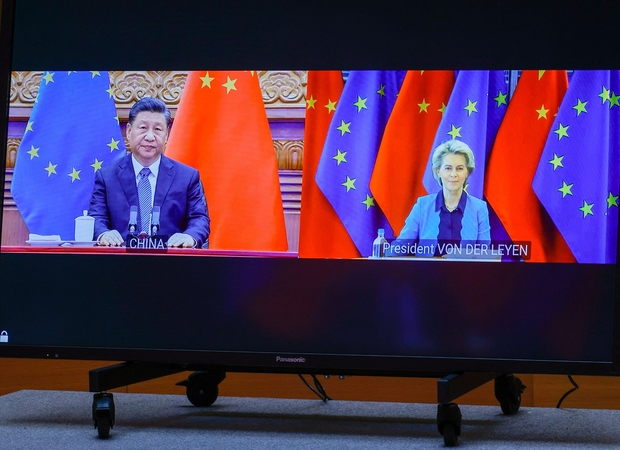
Europe’s China Policy Has Taken a Sharp Turn. Where Will It Go Next?
In their first such meeting in nearly two years, representatives of the European Union and Chinese government met on April 1 for a virtual summit. The conversations took place against the backdrop of not only unprecedented unity among the members...
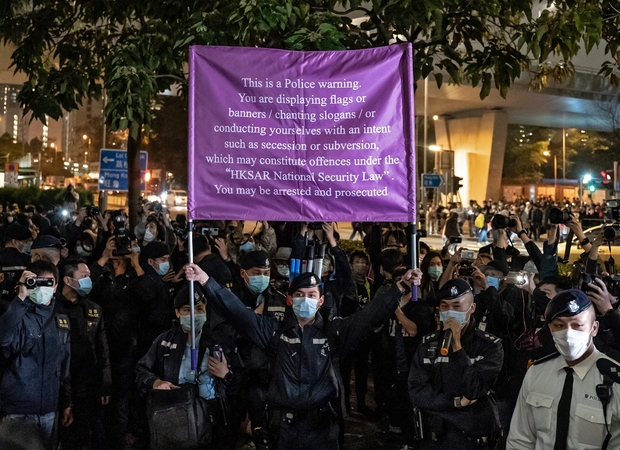
Arrest Data Show National Security Law Has Dealt a Hard Blow to Free Expression in Hong Kong
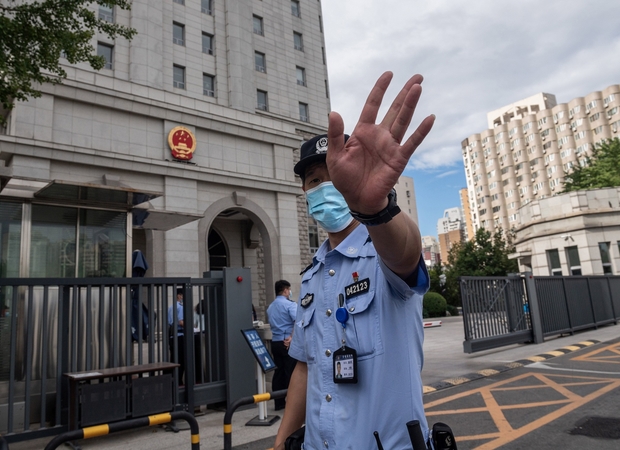
Verdicts from China’s Courts Used to Be Accessible Online. Now They’re Disappearing.
Judicial transparency in China has taken a significant step backward in recent months. Beginning at least a year ago, China’s Supreme People’s Court has considerably scaled back the number of cases available on its China Judgments Online web...
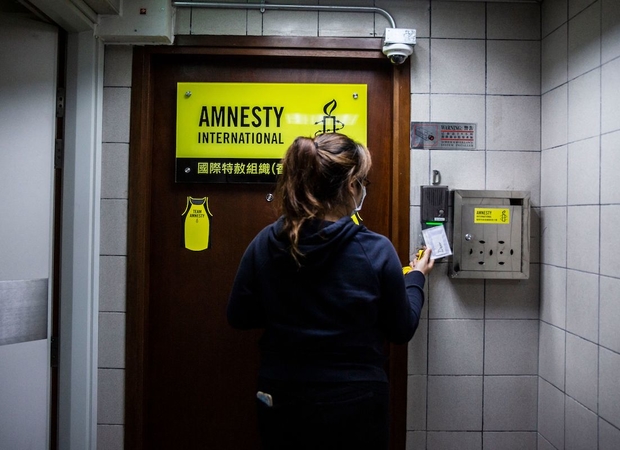
Hong Kong’s National Security Law Made Amnesty International’s Departure All But Inevitable
The human rights violations being committed now under the National Security Law only demonstrate China’s decision to drift further away from compliance with international human rights law. Rather, the NSL’s claim to global jurisdiction signals an...
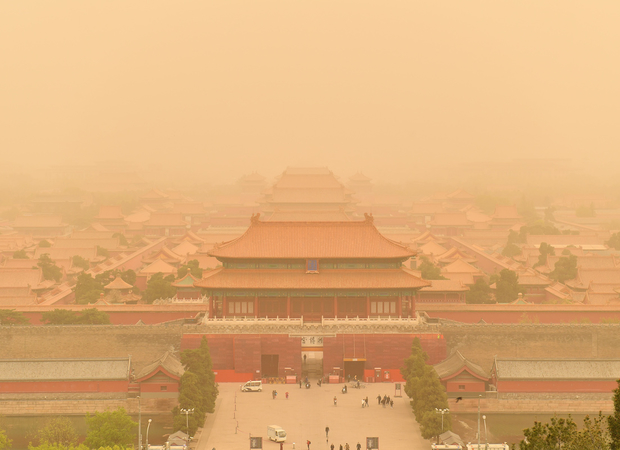
‘China’s Search for a Modern Identity Has Entered a New and Perilous Phase’
In 1980, writing the last paragraph of the last chapter of Coming Alive: China After Mao, I declared that China was moving “from totalitarian tyranny to a system more humane, part of a struggle by this nation to free itself from a straitjacket...
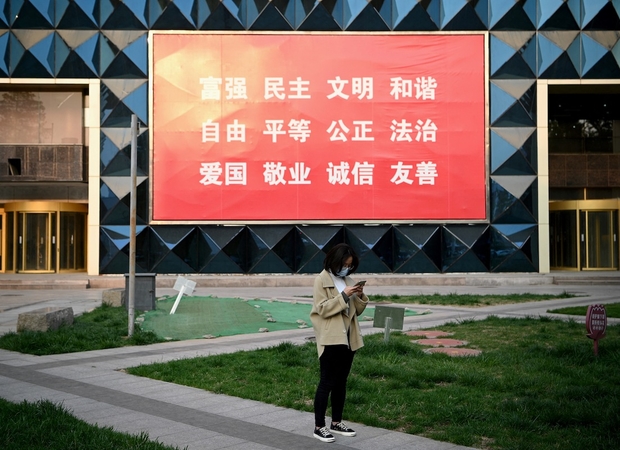
Why China Is Going After Its Tech Giants
Just days after its lucrative listing on the New York Stock Exchange, China ride-hailing giant Didi Global was hit with another round of sanctions by the Cyberspace Administration of China (CAC). On July 4, the country’s Internet regulator...
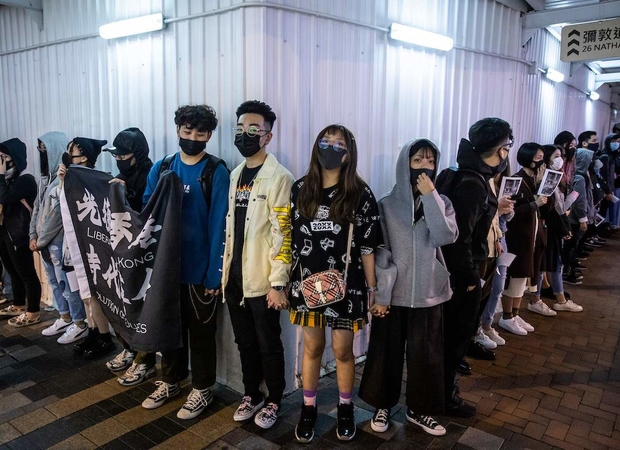
The Protest Families of Pro-Democracy Hong Kong
from New York Review of BooksThey met at a crossroads in October 2019. That day, Hong Kong’s people came out in their tens of thousands, to protest the proposed Extradition Bill, which would allow the territory to detain and transfer citizens to mainland China. Hoikei was...

A Letter to My Editors and to China’s Censors
Xu Zhangrun, perhaps China’s most famous dissident legal scholar, released a letter addressed not only to China’s censors but also to the editors and publishers with whom he had worked for decades. That essay, translated below, is Letter Eight in...
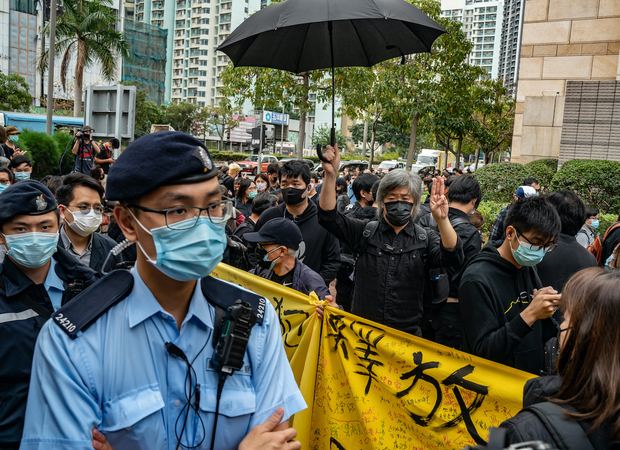
New Data Show Hong Kong’s National Security Arrests Follow a Pattern
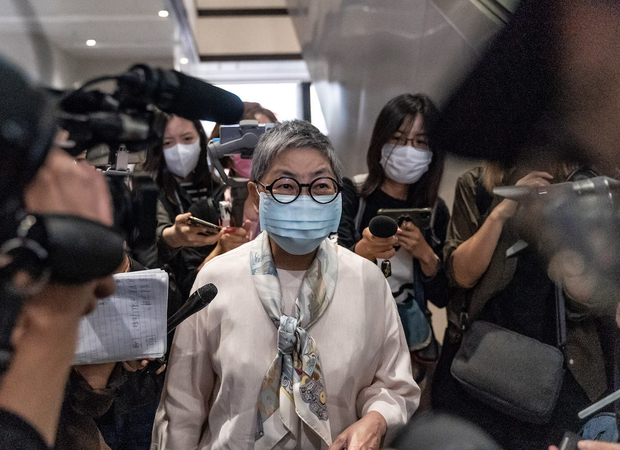
‘I Stand the Law’s Good Servant, but the People’s First’
Former legislator and prominent lawyer Margaret Ng was given a suspended sentence of 12 months. In her sentencing statement, which she read out in open court, Ng recounted her career in law and politics, interweaving her own story with the...
Hong Kong’s National Security Law
The National Security Law (NSL) constitutes one of the greatest threats to human rights and the rule of law in Hong Kong since the 1997 handover. This report analyzes the key elements of the NSL, and attempts to gauge the new law’s impact on...
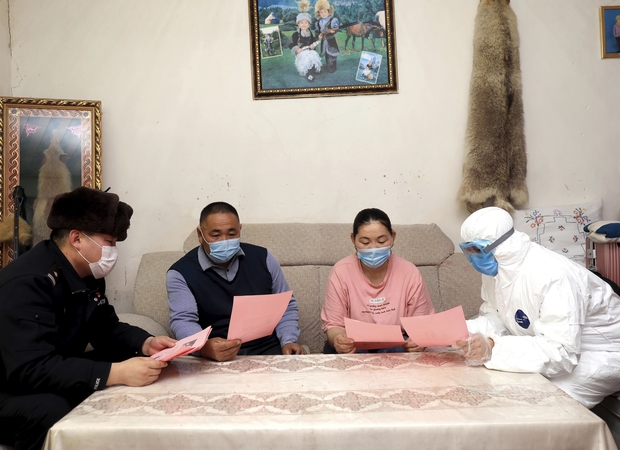
In Xinjiang, Rare Protests Came Amid Lockdown
Six months after China rolled out its first coronavirus lockdown in Wuhan in late January 2020, Urumqi was placed under quarantine. The first lockdown specifically targeting the capital of the Xinjiang Uighur Autonomous Region, rather than the...
Precarious Progress
Whether state decisionmakers in the coming years and decades will pursue policies to protect the equal rights for LGBT people will come down to a mix of ideology, pragmatism, and public pressure. LGBT advocates are striving to turn that calculus...

China’s First Big #MeToo Case Tests the Party
from New York Review of BooksIn November, a court at last notified Zhou Xiaoxuan, known more commonly by her nickname, Xianzi, that it would try her case, a civil lawsuit filed in 2018 against television host Zhu Jun, who she alleges sexually harassed her. But when the trial...

How the CCP Took over the Most Sacred of Uighur Rituals
The rooster hadn’t even stopped his crowing when the police arrived at my Uighur host’s courtyard in rural Turpan one early spring morning in 2008. Although they spoke calmly, almost apologetically, the uniformed Uighur officers demanded that the...
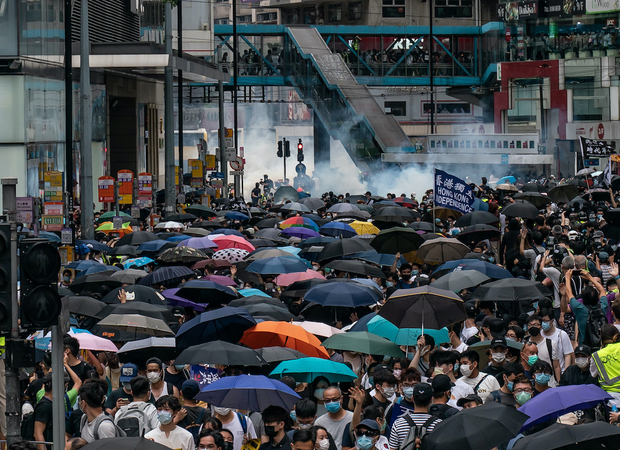
China’s Clampdown on Hong Kong
from New York Review of BooksHong Kongers demonstrated about everything from the removal of hawkers selling fish balls during the Chinese New Year to fare increases on mass transit (which had also provoked protests under British rule). But mostly they have demonstrated...

Technical Difficulties
Citing national security concerns, the Trump administration announced...
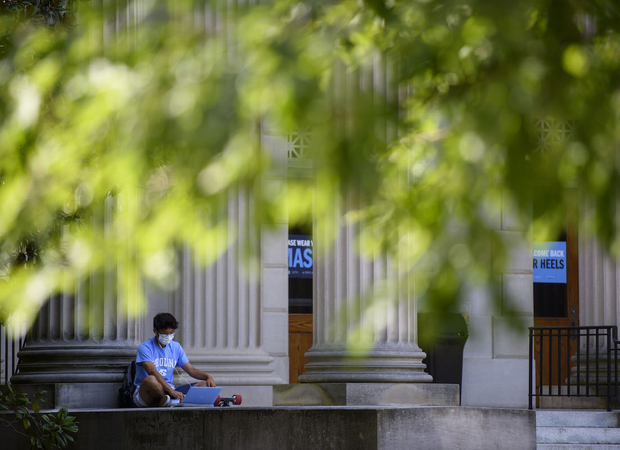
The Future of China Studies in the U.S.
As an extraordinarily fraught school year begins, the study of China on U.S. campuses (or their new virtual equivalents), as well as China’s role in university life more broadly, has recently become a subject of scrutiny and debate. What is the...

How Should Democracies Respond to China’s New National Security Law for Hong Kong?
July 1 will mark 23 years since Hong Kong’s return to Chinese sovereignty. Each of those years—and many that preceded them—has seen its share of disquiet over the future of the territory’s way of life and about the resilience of “one country, two...
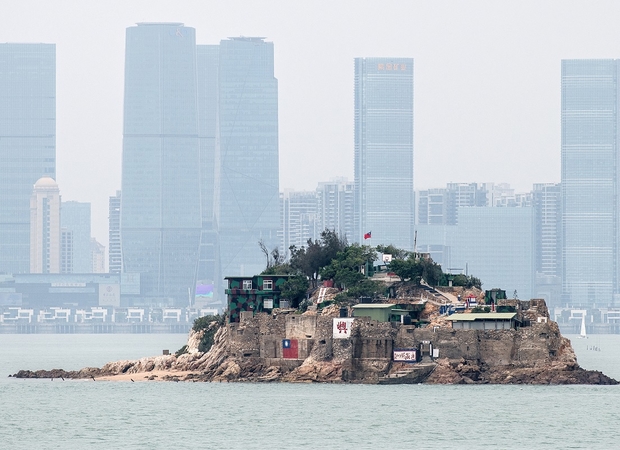
What Are the Right and the Wrong Ways for the U.S. to Support Taiwan?
What are the right and wrong ways for the U.S. to support Taiwan? Traditionally, America’s goals have been to deter the mainland from aggression and coercion, support Taiwan’s democratic system, strengthen economic ties, and help it maintain...
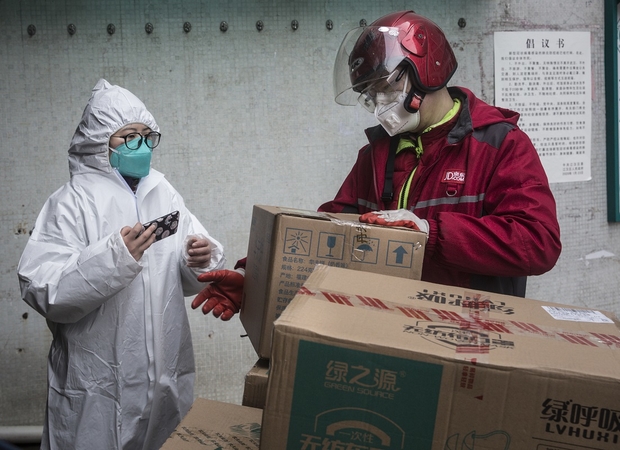
China Alters Civil Society Rules, Allowing More Groups to Respond to Coronavirus
As the COVID-19 epidemic continues in China, so do the efforts of civil society organizations and concerned citizens to mitigate the harm. In the official approach to managing their involvement, there have been clumsy force-of-habit measures from...
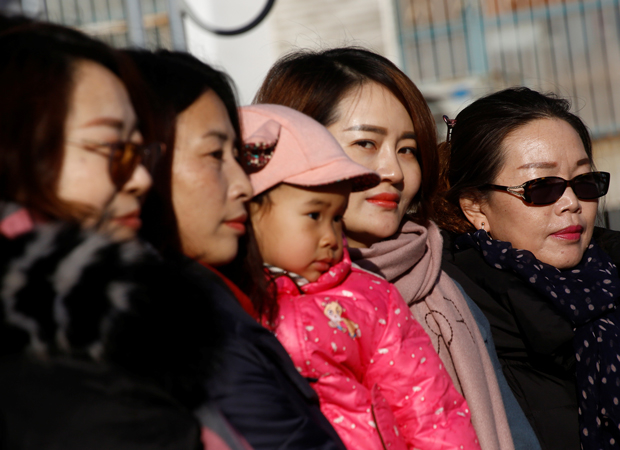
‘If We Give up on Our Husbands Today, Tomorrow Our Children Will Be Ashamed of Us’
This is a story about fear and the attempt to conquer fear. The wives of some of the lawyers who disappeared in China’s “709” crackdown have suffered house arrest, threats, and suppression. In their search to find their husbands, they hope no...
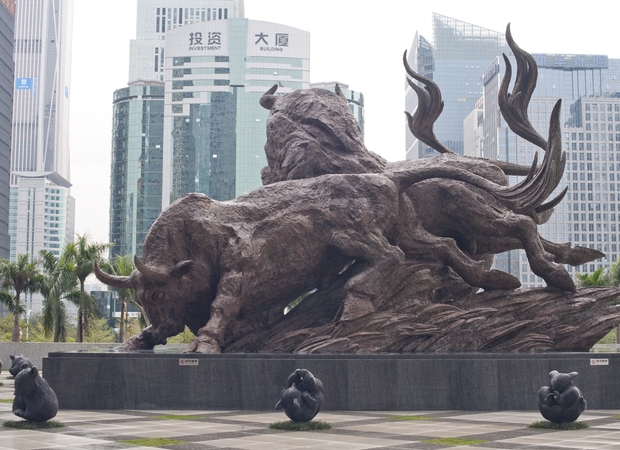
Can China’s Government Replace Hong Kong?
As the Hong Kong protests enter their fourth month with no end in sight, on August 18 Beijing announced that the nearby Chinese metropolis of Shenzhen would again become a new type of special economic zone. In a clear message to Hong Kong, the...
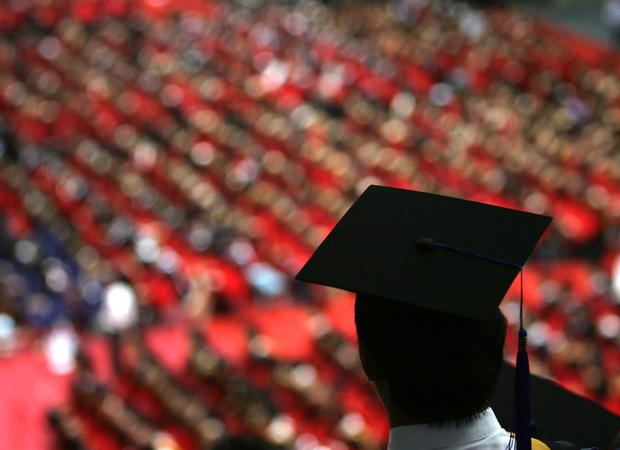
The U.S. Recently Erected a New Hurdle to U.S.-China Academic Cooperation. Here’s What It Might Mean.
A recent move by the U.S. Department of Commerce reminds us that academic relationships are not immune from the effects of deteriorating U.S.-China relations. In April 2019, the Department included several Chinese universities on its Unverified...
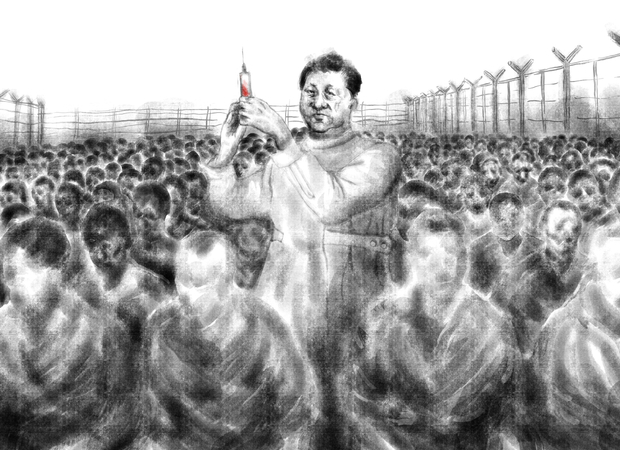
‘Once Their Mental State Is Healthy, They Will Be Able to Live Happily in Society’
We should pause before impetuously tracing the practice of describing Islam as an illness, disease, or even cancer to “Western” politicians. While the United States-led “War on Terror” and subsequent global anxieties over Islam have undeniably...
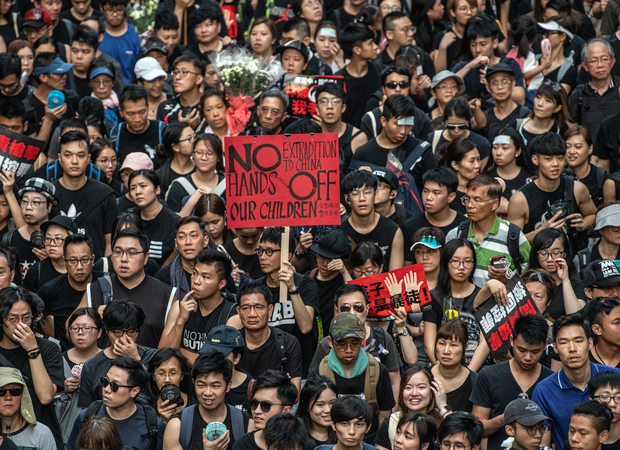
What Does the Pause of Hong Kong’s Extradition Bill Mean?
The Hong Kong people’s historic mass protests during the past 10 days have demonstrated their awareness that the now suspended extradition bill proposed by Chief Executive Carrie Lam represented a threat to Hong Kong’s promised “high degree of...
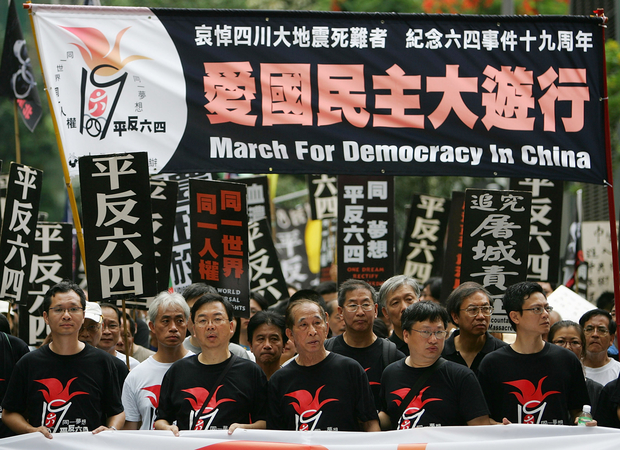
Taiwan and Hong Kong Have a Stake in Mainland China’s Political Development. They Should Act on It.
A range of observers and experts predicted that mainland China’s rapid economic modernization since the early 1990s would lead to social and political liberalization. Needless to say, that has not come to pass. The mainland’s economic reforms...
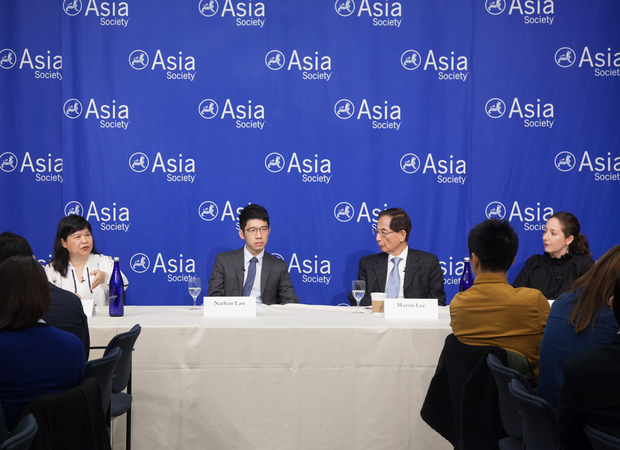
ChinaFile Presents: Hong Kong’s Relationship with Beijing, An Update
ChinaFile hosted a conversation at the Asia Society on May 9, with veteran Hong Kong legislator and rule of law advocate Martin Lee, longtime journalist and media rights expert Mak Yin-ting, and democracy activist Nathan Law, moderated by...
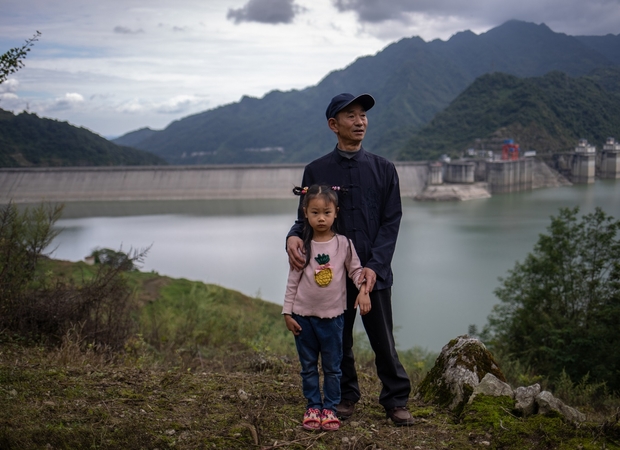
Living by the Rivers
from Yuanjin PhotoIf the stories in this edition of Depth of Field share a common thread—apart from their distinguished photographic storytelling—it’s their interest in the flux and churn of life in China in 2019, where nothing seems fixed and pressure of constant...
The Face of China’s #MeToo Movement Enters the Fray
In the summer of 2014, Zhou Xiaoxuan, then a 21-year-old living in Beijing, filed a report with the local police. She described what had happened the previous day when she had delivered a basket of fruit to one of China’s most prominent news...

‘Reeducating’ Xinjiang’s Muslims
from New York Review of BooksIn a courtroom in Zharkent, Kazakhstan, in July 2018, a former kindergarten principal named Sayragul Sauytbay calmly described what Chinese officials continue to deny: a vast new gulag of “de-extremification training centers” has been created for...

What Do the Huawei Indictments Mean for the Future of Global Tech?
The United States indictments against Huawei look set to significantly worsen already tense relations between China and the U.S. As America pressures allies to drop Huawei and other Chinese firms, U.S. and European officials point to China’s own...

Where Did the One Million Figure for Detentions in Xinjiang’s Camps Come From?
As journalists and scholars have reported in recent months on the campaign of religious and cultural repression and incarceration taking place in the Chinese region of Xinjiang, a central question has emerged: How many people has China’s...
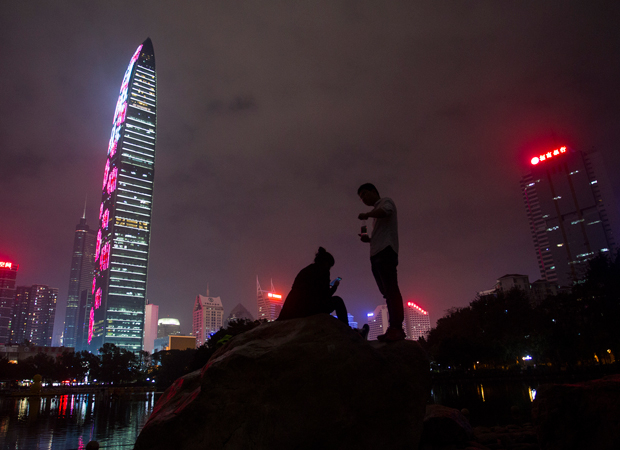
Forty Years on, Is China Still Reforming?
In late October, to commemorate the 40th anniversary of the “Reform and Opening Up” policy, China’s Chairman Xi Jinping visited the southern metropolis of Shenzhen, the first major laboratory for the Party’s post-Mao economic reforms. Like his...
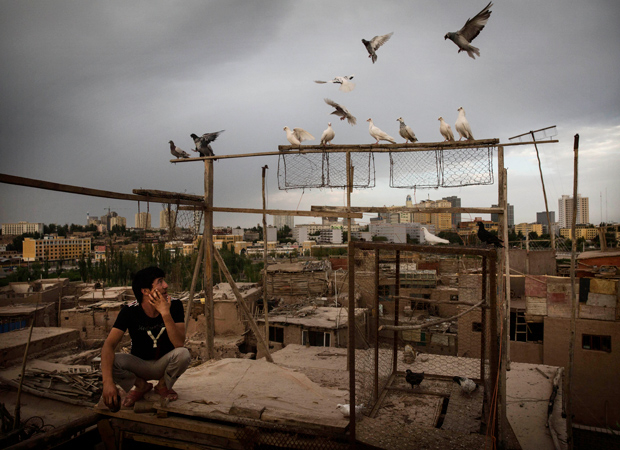
ChinaFile Presents: The Situation in Xinjiang
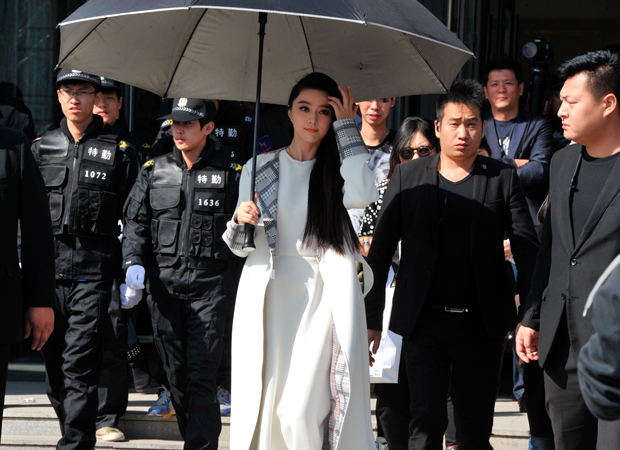
The Taxman Cometh for Fan Bingbing. So How Widespread Is Tax Evasion in China?
Mega-famous Chinese actress Fan Bingbing emerged from months of silence to admit on Weibo that she had evaded taxes and owed over U.S.$100 million worth of civil fines to Chinese authorities. In a remarkable apology, Fan wrote that, “without good...
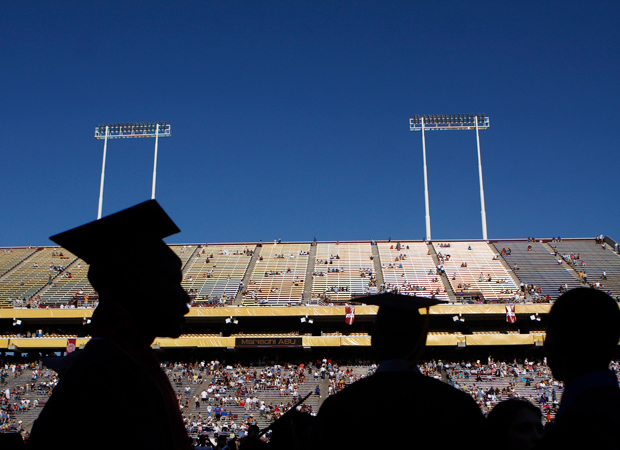
Banning Chinese Students is Not in the U.S. National Interest
President Donald Trump has made no secret of his desire to radically revamp America’s immigration policies. Indeed, his family separation policies, which sparked nationwide protests and public revulsion after they were rolled out in May 2018,...
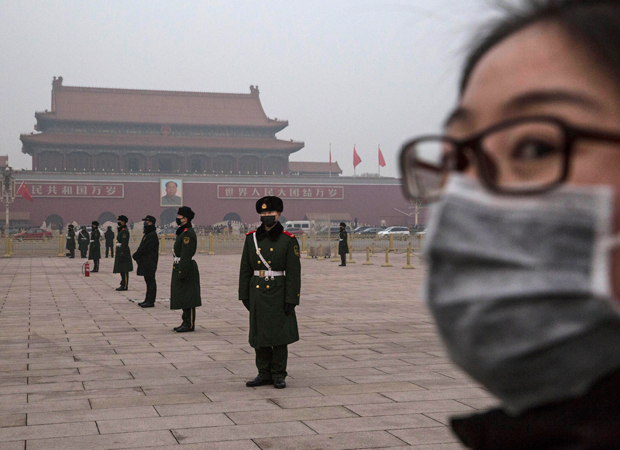
The Anti-Corruption Campaign Takes on the War on Pollution
At last year’s 19th Party Congress, Xi Jinping vowed to confront the “principal contradiction” facing Chinese society: “the contradiction between unbalanced and inadequate development and the people’s ever-growing needs for a better life.” While...
Reporting from Xinjiang
On September 20, 2018, ChinaFile and the Center for a New American Security (CNAS) co-hosted a discussion with BuzzFeed reporter Megha Rajagopalan on her reporting on state-sponsored ethnic and religious repression in Xinjiang and, in particular...







